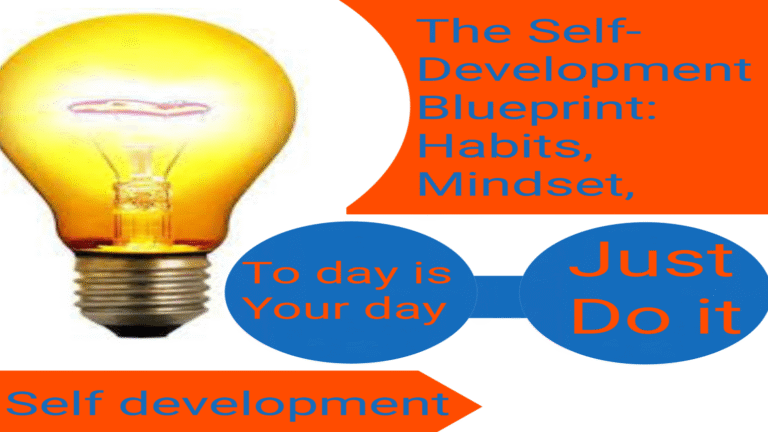Building Self-Discipline: How to Stay Consistent with Your Goals

Building self-discipline is not simply deciding how you are going to react to a bunch of motivation adrenaline highs, depending on your motivation shifts to try to establish self-discipline; it’s about learning to stick to the promise of practicing discipline. Consistency will be your only long-term trust-friend as life is constantly weary and chaotic, consistency will be the motivator to want to cross on your journey towards long-term goals. If discipline differentiates high performers from the rest, consistency will be the biggest partner in a grand exit on your long term dreams to write a book or loose weight or open a business- or to fulfill the commitments and requirements along the way. For this journey, we are going to focus on practicing discipline; not self-discipline; not resiliency; true, real, usable discipline.
THE STORY OF QUIET COMMITMENT
Maya, did what has surprised so many marathones and many more, she signed-up for her first marathon, a quintessentially to show-up (everyday!) – the same decision! Maya never really ran and could hardley continuous 10-seconds of jog without gas or time! So, she started where Martin Luther King Jr said to start all those years earlier: small, then walk, then jog, then run, a little more. There were silly cold days, and very tired days, and days of drifting down, however she showed-up! In her favourite as a quick aside, fast forward 10, months later– she was crossing the finish line of a marathon—- and not on “natural” talent– she literally just didn’t quit. Maya was humble enough to learn and remember: discipline is not perfect; discipline is just showing-up, especially on the harder days.
1.BE CLEAR ON YOUR PURPOSE
Every person with discipline will have one purpose, and that one is sufficient to keep that person committed to their practice of discipline. To start to get a sense of who you are going to be. . . the questions are:
• What DO I actually want, and why?
• What do I recall as my reasons for attempting to achieve this particular aim?
• Who am I going to be to help make this happen?
You will discover an superficial purpose for your disciplined actions, to sustain your practice of discipline then you likely reframed your purpose. Purpose is always greater than motivation! When you remind yourself, feast on purpose let the brilliance be your cover for mischief in tricking yourself into recognition that practice is self-care (to not punish) and you have control and authority over it!
2.START SMALL
There is a general “we are going to work-stop” space of purpose, focus-burnout after practice of discipline and usually stems from wanting to do it all, then “0” collapse in post-mortem burnout without even knowing it! Rather,• Take action everyday and take one action step, and consistently repeat that small action, everyday• Progress-not perfection• Gradual, or slow, action will build you momentum most of the time!As a virtue, it will always be that much easier to have a clarity around the framework of small, repeatable, consistent behaviours until behaviours viewed from here, become who you ARE, not the people you shy away from,– become!
3. Form a Routine
Discipline has a limited reserve of willpower. Discipline is a routine, from that point on, you have a routine, and from that point set when you will do the goal you have set and decide when you make that decision so the work is not difficult. You want to set the work environment you go get it you only want to notice it in set up once but ultimately separation should exclude distracting things from you. The same activity repeatedly rather than different activities is easier when you do something for long enough time consistently.
4. Eliminate distractions
Where I live distraction is not doing more, it is eliminating distractions. Eliminate anything which serves as a distraction towards what you want (social media, obligations, rubbish). Specify a number and apply a countdown timer, limit your peer associations in terms of everything. The fewer distractions which detract attention your goal focus you should find it easier to follow through with the steps involved in achieving your goals.
5. Be good to yourself
We all make mistakes, do your have a choice in you act upon that mistake? Be good to yourself. Making a mistake, is not indicative that you aren’t learning something through the differing mistakes you make. Don’t go the all or nothing route (i.e., one bad day does not invalidate your entire test). Talk to yourself how / like you would talk to someone you like.You cannot have self-discipline without self-compassion or you will burn out.
6. Log Your Progress
If one reason you do not have goals is you are worried about the implications or pressure related to those goals, don’t be afraid to try it! Habit tracker, log, app! At the end of the week, take a little bit of time to think through what you accomplished, and have an intentional conversation about scheduling for the next week, and what changes you may want to make to your schedule. With your responses, if it is within your accountability agreement, find a way to reward yourself for each little success (small is still success don’t forget). The idea of measuring your goals is to create a simple means of tracking where you’re at in your process (to help you keep going).
7. Seek Accountability and Support
- Self-directed people leverage some, most, or all of their support from others.
- Tell someone your goals and ask them for accountability.
- Find a person, or group of people you can share common interests, and have check-in and group meetings.
Check-ins help to turn your commitment to the discipline you are engaging in into a joint process, rather than an individual focus.
To wrap things up!
Self-discipline is not an innate trait it is a skill, learned through repetition. It is FAIRLY safe to say that the moments we think are self-disciplined acts are very few in comparison to the ongoing, quiet thoughts, behaviours, decisions we do to make an action instead of an excuse, which are self-discipline. By understanding your goals and process, making processes for your routine, and patience, you are building opportunity for long-lasting behaviours and habits that create the difference you want to see. Say it with me out loud. It is not about perfection, it is about consistency and showing up again and again.






